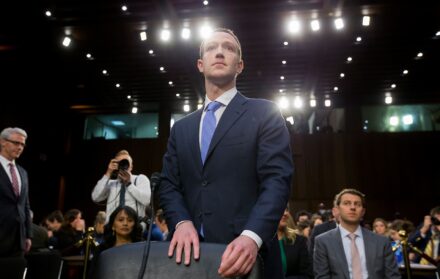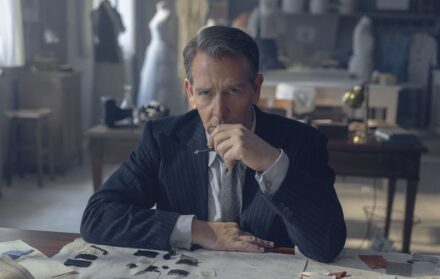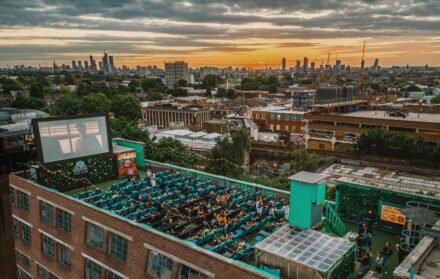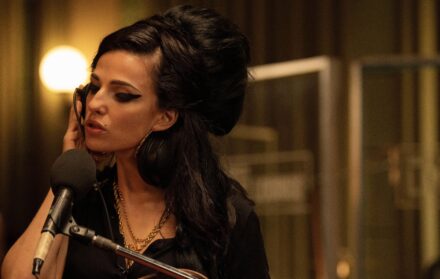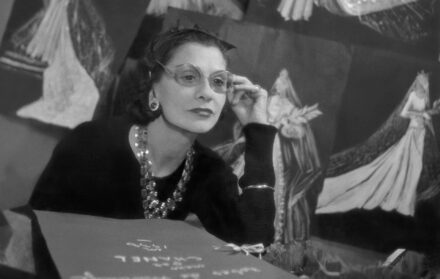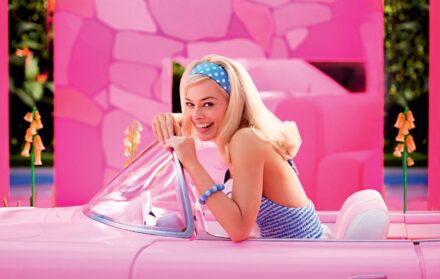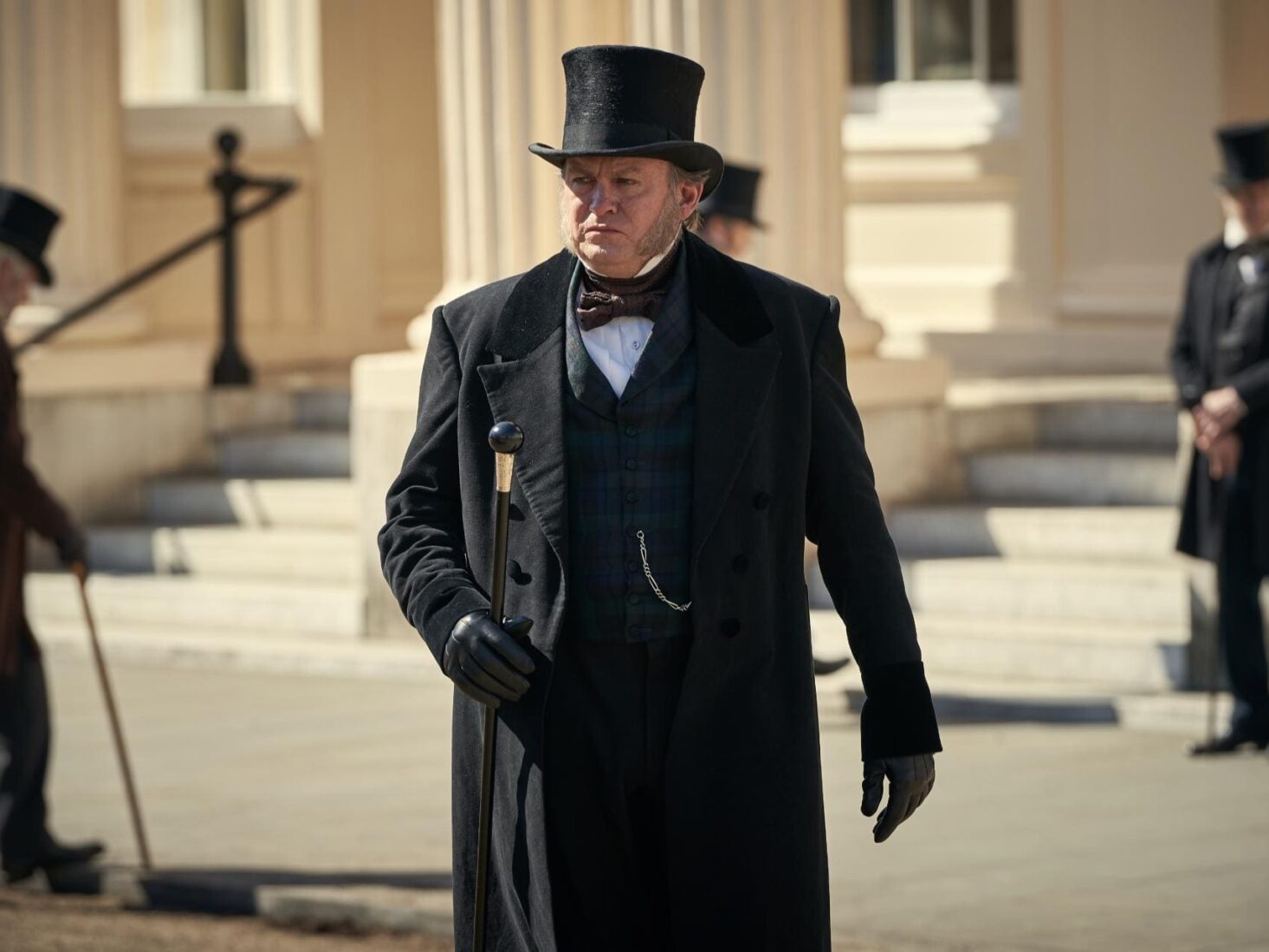
Belgravia: Julian Fellowes’ new period drama is a tonic for our times
ITV’s latest limited series Belgravia has all the thrills and frills you’d expect from its writer Julian Fellowes. And it’s a very welcome distraction
“Period dramas have to tell us about ourselves to catch on,” says Julian Fellowes, the critically acclaimed, multi-award-winning writer, director and novelist of Downton Abbey fame, who has now turned his hand to the superb new ITV limited series, Belgravia. “There is something quite interesting when you demonstrate that human nature doesn’t alter. Crinolines and carriages may change but audiences see people with impulses they recognise, making choices they would make. The fact that those characters are in a top hat or a tiara doesn’t make any difference.”
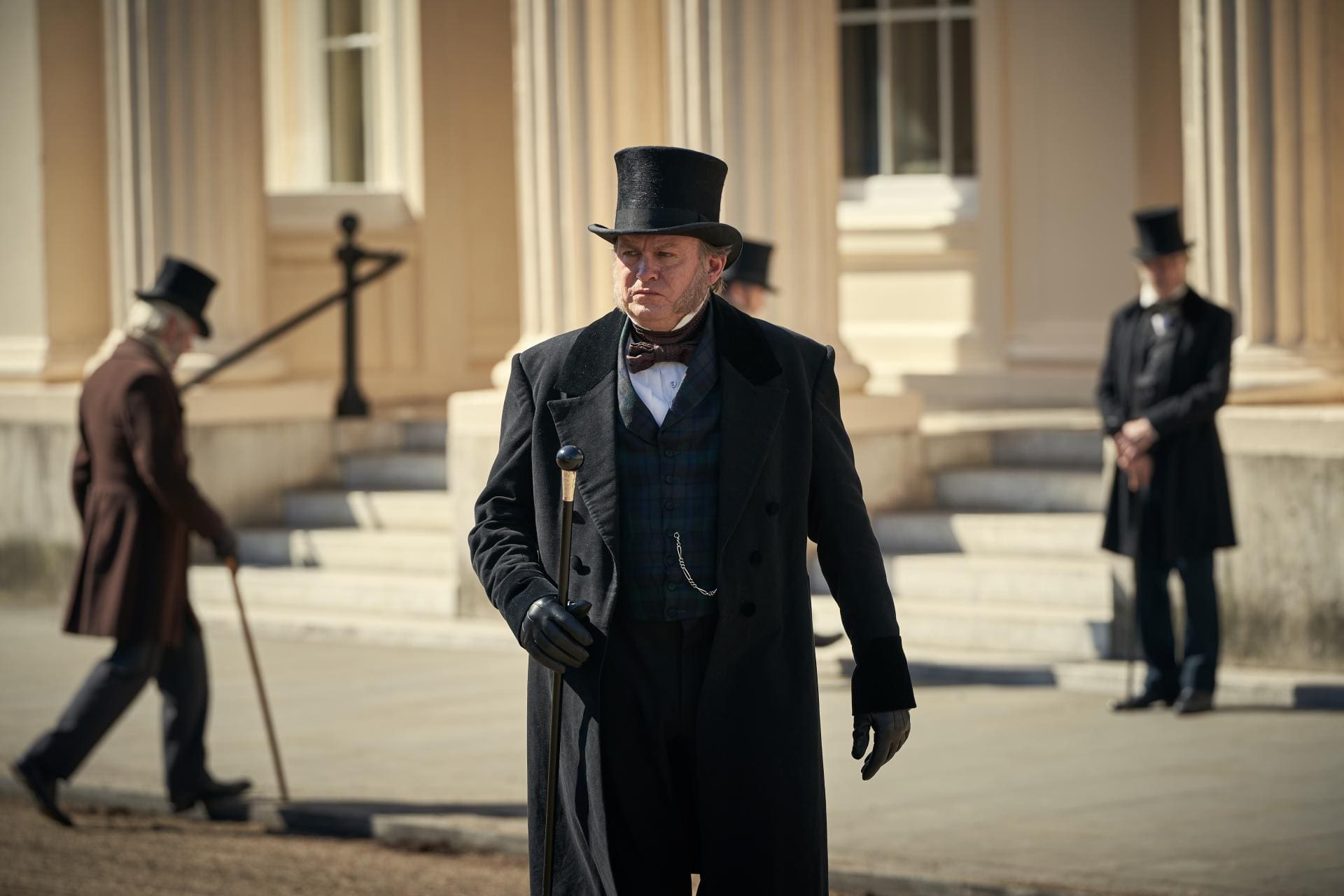
Belgravia, which started only a couple of weeks ago, opens at the fabled Duchess of Richmond’s ball on the eve of the Battle of Waterloo in 1815. Young sweethearts Sophia Trenchard and Edmund Bellasis are seen whispering and giggling in the wings, before we soon find out that she has been duped into matrimony – and more. Spoiler alert: the repercussions of the scandal will long outlive its protagonists, and when Sophia’s parents move to the swanky new area of Belgravia, they find themselves rubbing shoulders with the venerated Brockenhursts. The two families share a past that threatens the future of many, which they must conceal behind the porticoed doors of London’s grandest neighbourhood.
The unassuming cast includes the instantly likeable Tamsin Greig (Friday Night Dinner) as Anne Trenchard, an astute, quietly thoughtful and strong female lead alongside Philip Glenister (Life on Mars) as her husband James, a self-made opportunist and hapless social climber. But this isn’t just another upstairs downstairs tale, explains Greig. “It’s much more complex, there is no vertical divide between masters and servants. The characters are much more three-dimensional. For instance, someone has an affair, and in the process they gain information that becomes useful. The web goes everywhere. Julian is very good at spinning webs that affect people on all levels of society, not just employers and employees.”
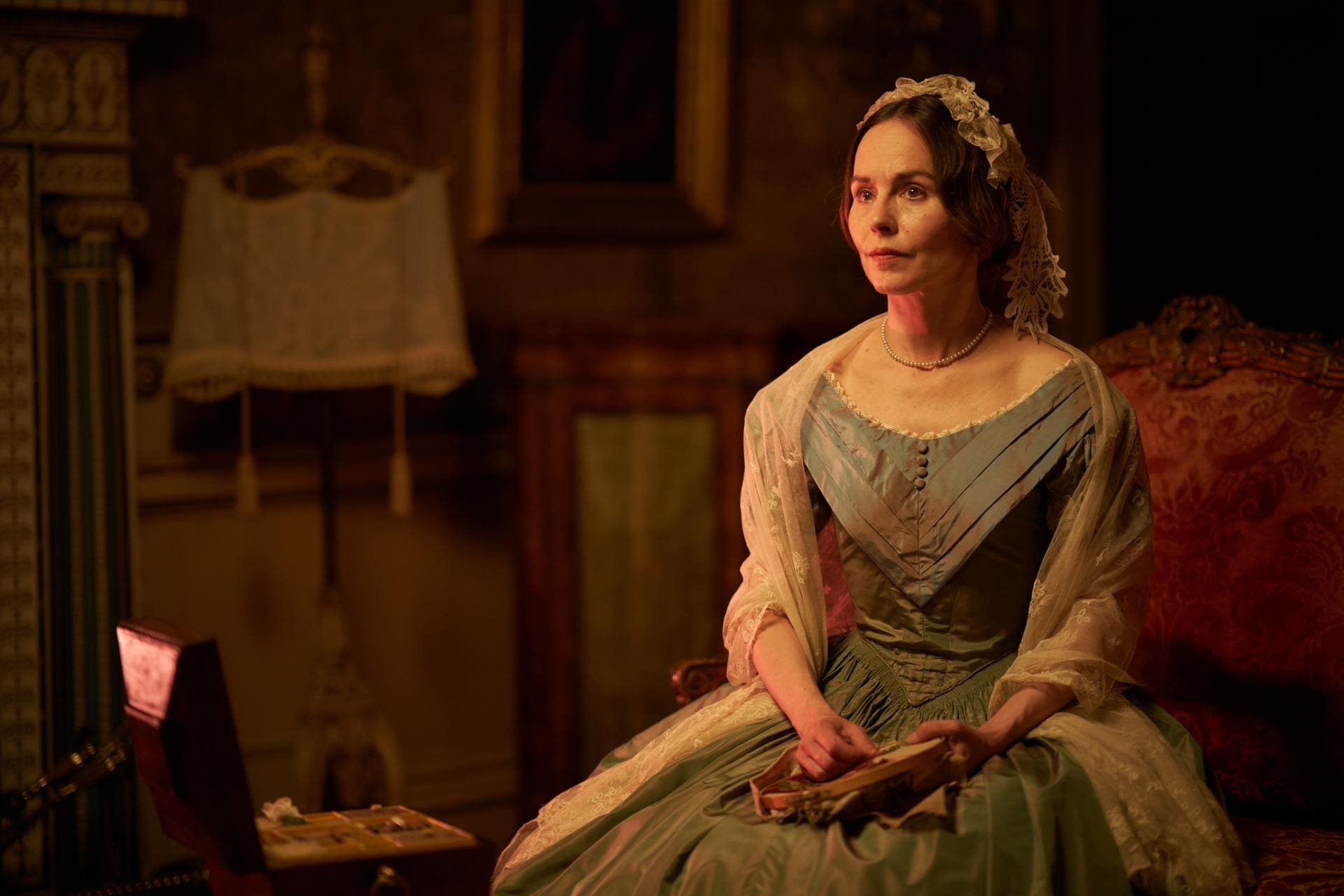
But what is it about the British that make them gaga for period dramas? “British history is so interesting and powerful and informs so much of who we are now,” she continues. “We have extraordinary access to our past. All children know why they came into the world and what their first word was. It’s part of our mentality to want to know our own story. In the same way, we’re doing something quite healthy with period drama. We’re not escaping from today and saying, “That was a better time.” We are saying, “What brought me here?”
Comparisons to Downton Abbey are of course inevitable, and viewers will be delighted to know that it does tick a lot of the same boxes with its themes of love and loss, as well as hope and romance. Its characters are both loveable and flawed at the same time, while the costumes and set offer a wonderful sense of escapism. It too offers a wealth of wonderfully strong, intelligent and droll female roles. But the storytelling, and of course the period, differ enormously. The script is Fellowes to a tee: witty and clever, yet delicate and ambiguous. The dialogue is rich, the comedy very British: built on subtle social observations and snide remarks as well as class problems, scandal and expectation. But it also tackles the very modern issues of gender politics, social advancement and wealth, which are of course as old as time. What’s more, the servants in Belgravia aren’t quite as honourable as they are in Downton, which makes for a more suspicious dynamic, but perhaps a more accurate history lesson.
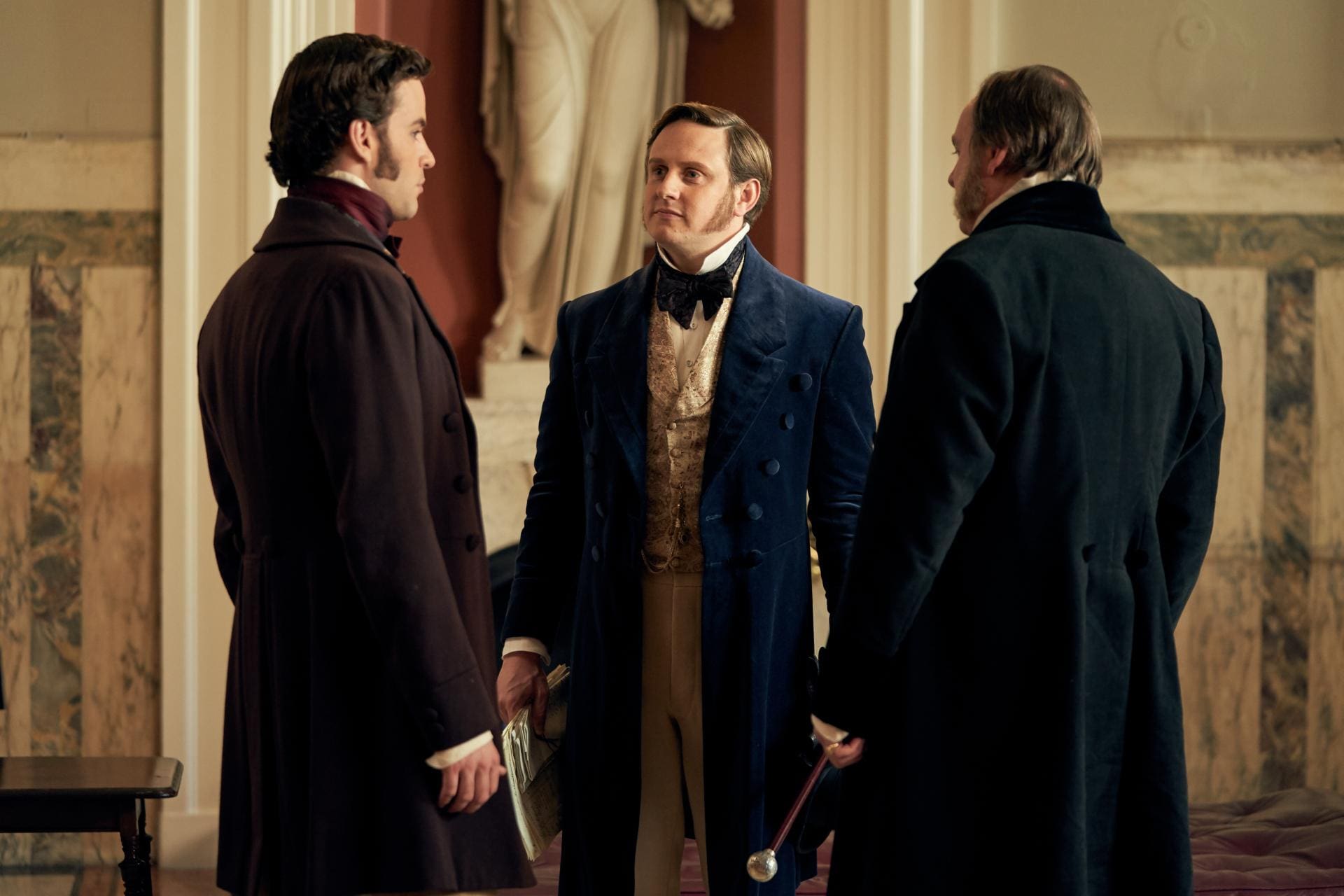
As well as Greig and Glenister in the lead, Lady Brockenhurst is played by Dame Harriet Walter with aplomb. Once a great beauty, Lady Brockenhurst hides her private sadness behind a carapace of good breeding and a degree of aristocratic hauteur, which feeds her sense of superiority. A clever woman, and a talented artist, she shows strength and fortitude in adversity, forming unusual alliances to protect those she loves. “Julian writes women incredibly well,” says the show’s producer Colin Wratten, “and at its heart Belgravia is about two strong-willed matriarchs who are separated by a class divide but who are both suffering from the death of a child.”
“Julian has put two women – Anne and Lady Brockenhurst – centre stage and has focused on their power, which is that they have secrets about the continuation of the family line,” adds Greig. “It’s what they do with that information which drives the story. Belgravia is about the rise of the middle classes and the nouveaux riches overtaking the entitled aristocracy. But what unites Anne and Lady Brockenhurst and jumps over all social classes is grief. That’s the thing that drives Anne to reveal to Lady Brockenhurst that she has an heir. It is women who hold that information, and that’s the most powerful thing. The series shows how political manoeuvring can create extraordinary change, but emotions can create great change, too.”
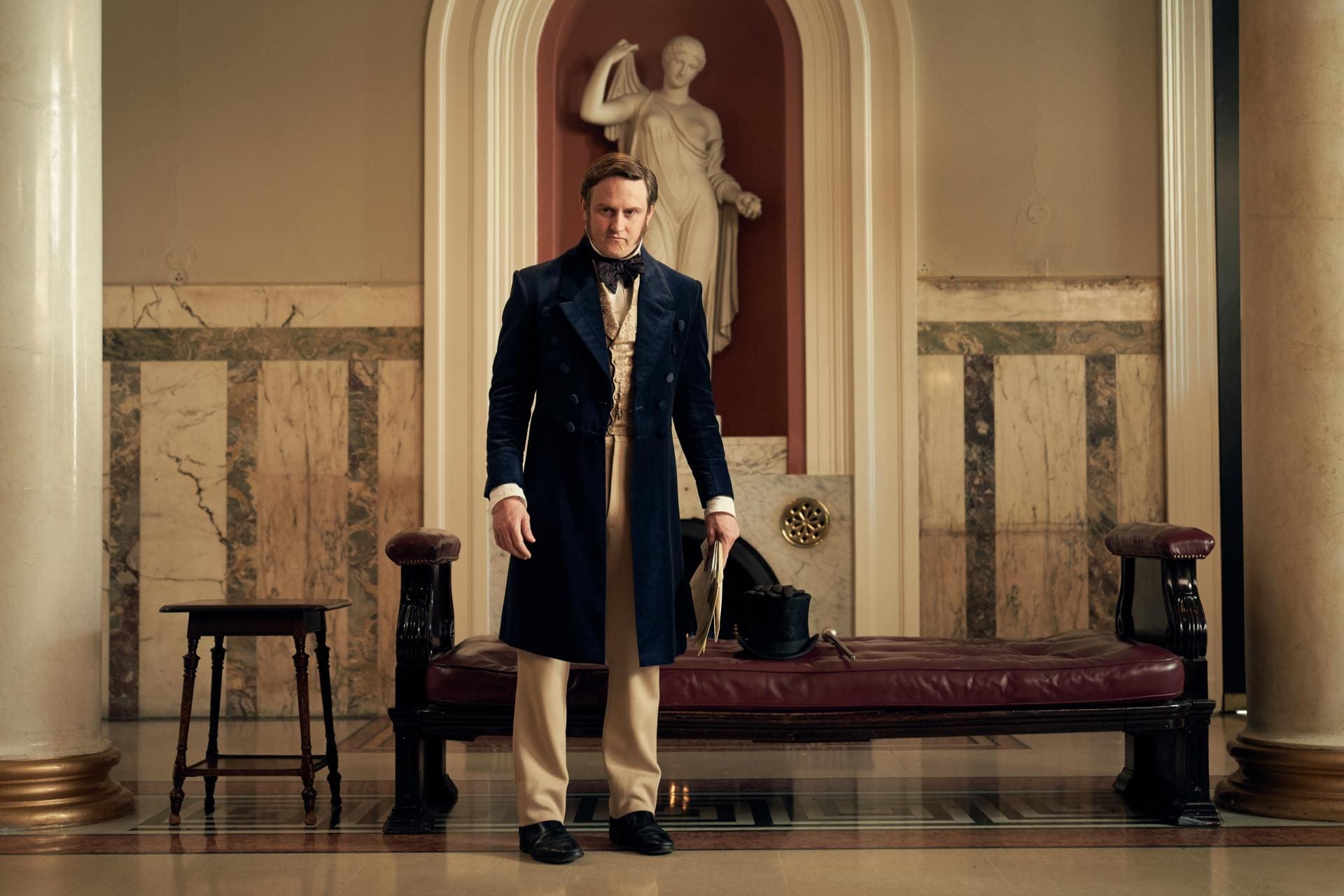
Viewers will assume that the series was shot in the capital’s namesake. However, one of the biggest challenges for the creative team was that Belgravia’s white stucco buildings house so many embassies and the like, that they were forced to look around the country to locate a similar architectural façade without the security factors. In the end, they set upon Moray Place in Edinburgh, bleaching the sandstone brilliant white with the help of CGI. Indeed, the six-part series calls for a total of 107 locations, as all the aristocrats have two houses – one in Belgravia and one in the country. Director John Alexander says: “I was looking for a style of elegant simplicity. You know the settings are sumptuous and you know audiences will want to enjoy those sumptuous settings. As a director, you don’t want to reinvent the wheel or find a modern twist on a period drama.”
With bottoms captive on couches for the foreseeable future, Belgravia promises to provide an abundance of petticoats and tittle-tattle still to come, a welcome distraction from the very real horror at all of our doorsteps. Fellowes hopes his audiences will take something away from the show but ultimately he just wants people to enjoy it. “Julian tells a story with twists and turns, but in the end, fate has a way of putting things right,” says the series’ director John Alexander. “The end of a season can often be dark or cynically looking forward to a second series. But Belgravia has a very positive, optimistic ending. What I loved most about this project is the sheer pleasure it provides, and I hope viewers will feel the same.” Indeed, it’s a true tonic for the times.



